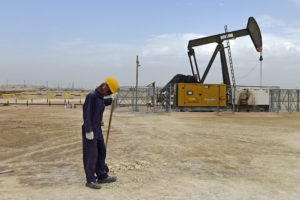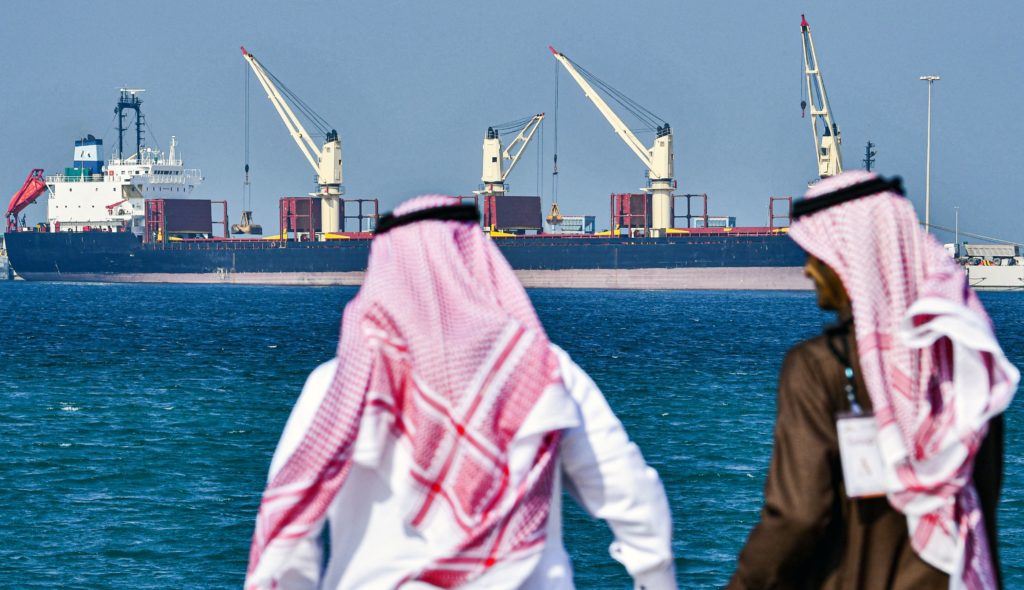São Paulo – After dropping as low as USD 20 in 2020, oil prices began to rebound this year. The Brent oil barrel is currently going for about USD 70 at the London Stock Exchange. If on the one hand this helps major Arab exporting countries get their finances back in order, on the other it burdens importers. Brazil is an oil producing country, but its inability to refine its own crude makes it a big importer.
According to Terra Investimentos analyst Régis Chinchila, one of the reasons for the spike in prices is a production cut announced by the Organization of Petroleum Exporting Countries (OPEC) and allies, including Russia, a group known as OPEC+. Some OPEC countries are Arab, like Algeria, Libya, Saudi Arabia, United Arab Emirates, Kuwait, Iraq and Qatar. This, however, is not the only reason.

“Another reason for the solid recovery seen in 2011 is demand, particularly from China, which keeps driving prices of energy commodities and minerals. Below-zero temperatures in Texas gave oil an added thrust. The cold wave killed oil and gas production in Texas, the biggest oil producing state in the United States,” says Chinchila.
A professor at the University of Campinas’ (Unicamp) Institute of Economics and a researcher at the Industrial Economy and Technology Center at Unicamp, Marco Antonio Rocha believes the price hike is good news to Arab producers and exporters because it brings cash into their economies, relieving pressure from rising costs. “It provides short-term relief, primarily in the form of trade surpluses at a time when inputs imports are in order to fight the pandemic, to for vaccines, to care for the population,” he says.
Brazil, in turn, experiences a highly particular reality when it comes to oil prices. It is a major producer. However, its oil is of the heavy variety, and the refining capacity is small, which leads it to export its output and to import oil for fuel. Right now, the premier importer of Brazilian oil is China, followed by the United States, Chile, Spain and Uruguay. However, Rocha points out other complexities when it comes to Brazil.

“Usually, the price of currency in so-called peripheral countries usually follows commodity prices, but that is not the case with the real. And so the impact makes itself felt with the depreciating currency and the high oil prices,” he explains.
The Market Intelligence manager with the Brazilian Fuel Importers Association (Abicom), Milena Mansur argues that the price hike is good for upstream firms, i.e., those involved in oil and gas exploration and production.
“On the other hand, there is a shortcoming in the supply of oil-based fuels. For example, 25% of the diesel purchased in the country is sourced abroad. We have lived with prices higher than USD 100 per barrel in the past, and that was without the pressures on prices we are dealing with right now. Still, it is important to note the influence of the exchange rate on product imports. Although the exchange rate in Brazil has been beneficial to exporters, it compromises import operations in a major way,” says Mansur. Even though it dropped over the past few days, the dollar climbed higher than BRL 5.70, driving up costs to importers, whatever the product.
Where is the oil price headed
The Abicom finds it hard to predict which way the commodity’s price is headed. Further hikes are possible, since Opec is not stepping up output, and an agreement on whether or not to cut could add another USD 5 to USD 15 per barrel. However, if prices go up too much, they might encourage a resumption of production at shale oil fields, produced through the fracturing of rocks, above all in the United States. “In light of the current situation, prices will not tend to drop in the medium term,” claims Mansur.

Rocha agrees that it’s hard to tell which way prices are going, but he estimates that prices will level out as of the second half. As for the dollar-to-real ratio, it will depend on what signals Brazil will give out to the world. “The risk here is seen as high, and that translates into the pricing,” says the professor.
How to keep prices from bouncing up and down
Rocha also argues that oil prices have an impact on inflation, not only due to the actual prices, or the price of the dollar, but because Brazil’s transport system is road-based. This means that costs to industry and the transport sector is virtually automatic, and no control over this is possible.
One solution for shielding the country from the ups and downs of oil prices would be to mirror the developing countries that build a kind of savings account for their oil. If oil prices go up too much, these countries will draw on those funds. When oil prices drop, prices to consumers do not drop as much, and so the savings are replenished. “Usually, an economic arrangement is made to keep international market fluctuations from directly affecting domestic consumption,” says Rocha.
*Special report by Marcos Carrieri
Translated by Gabriel Pomerancblum




